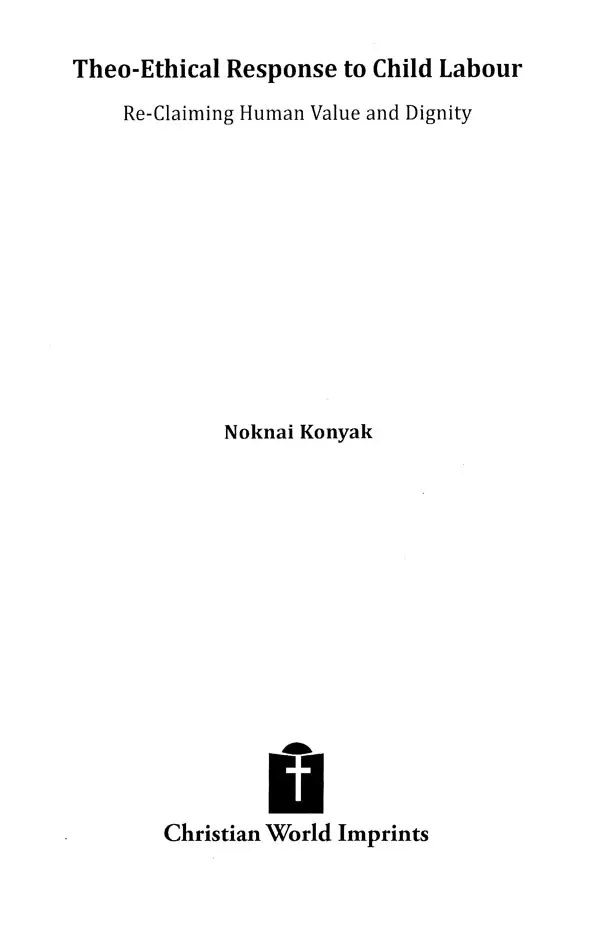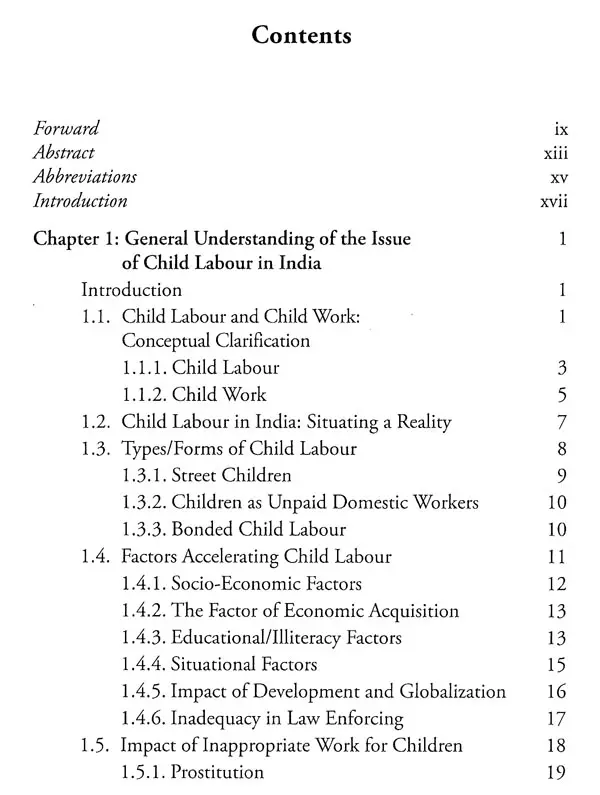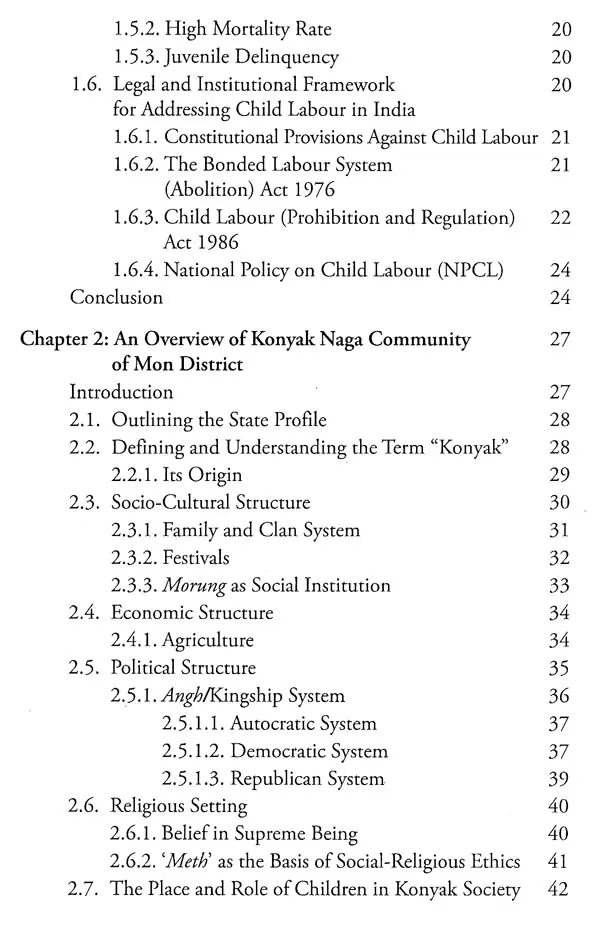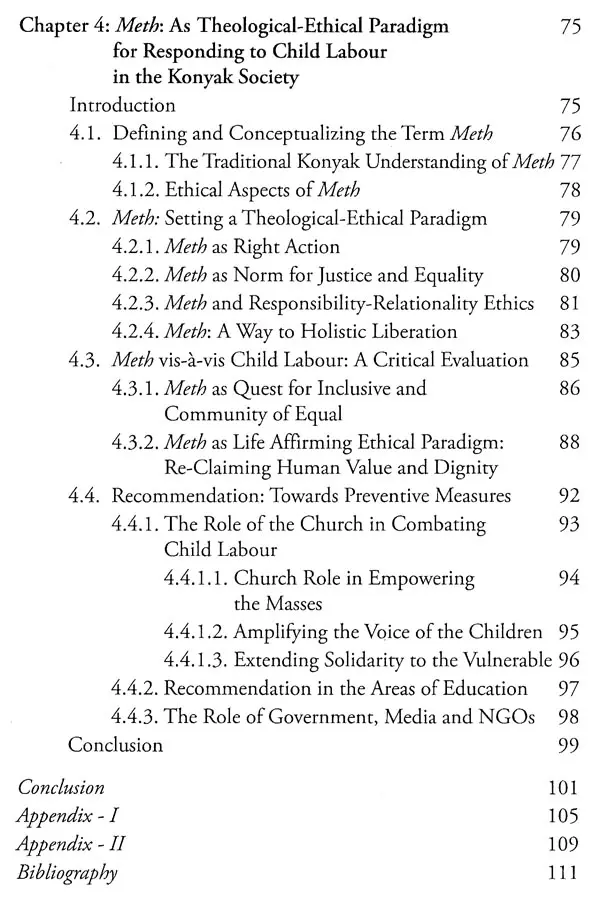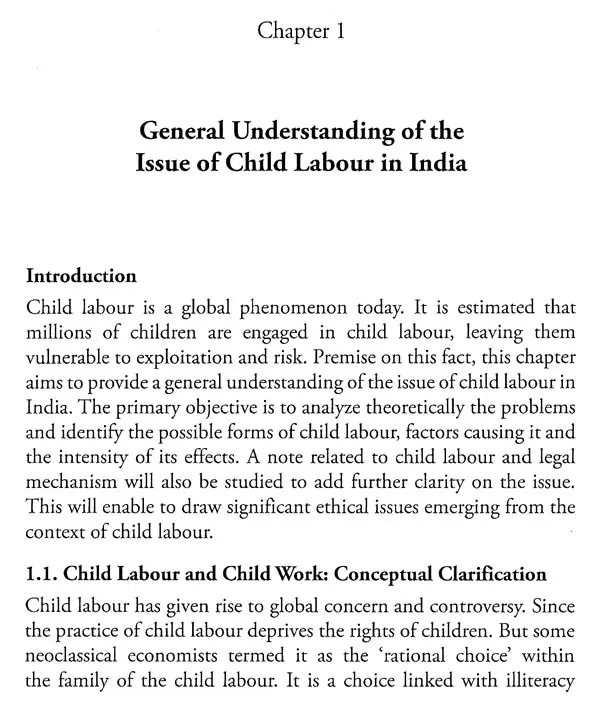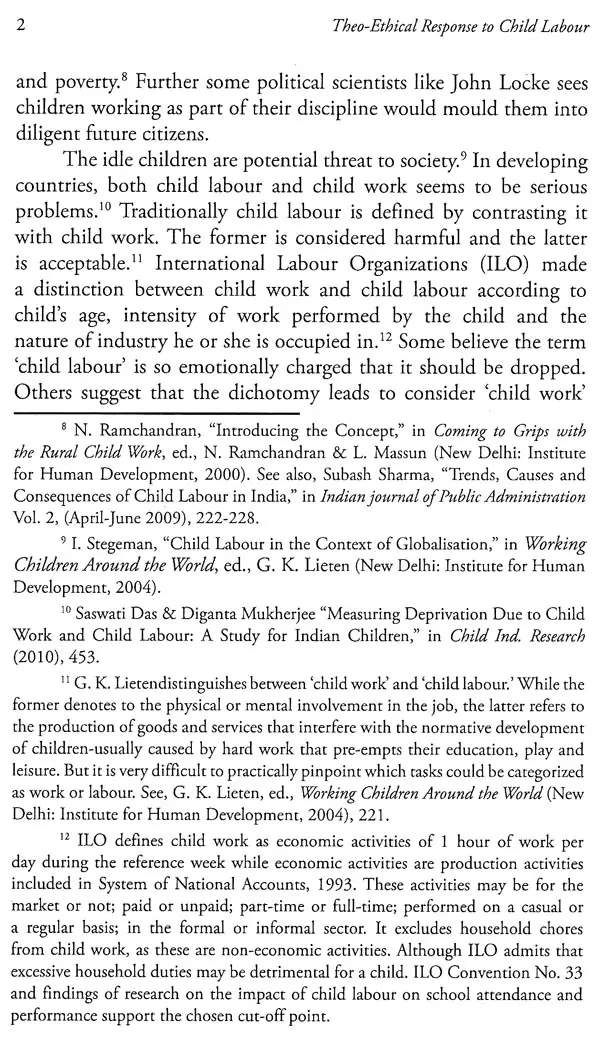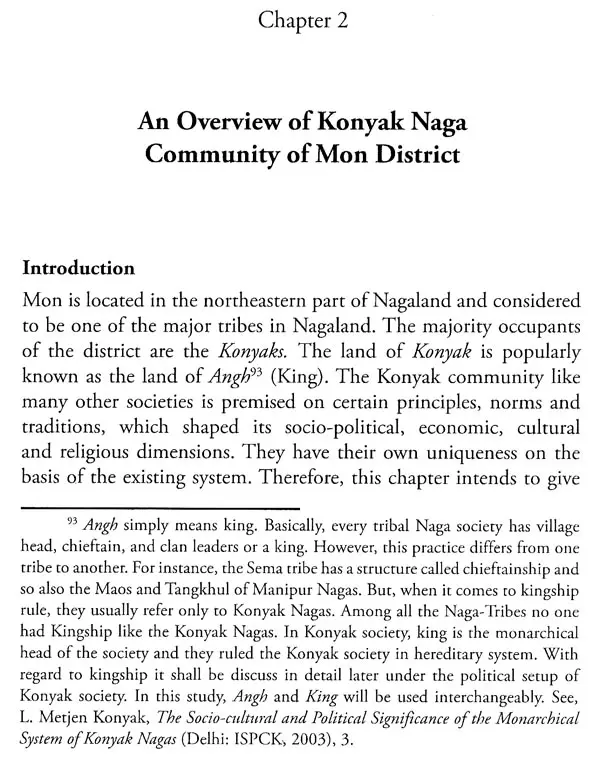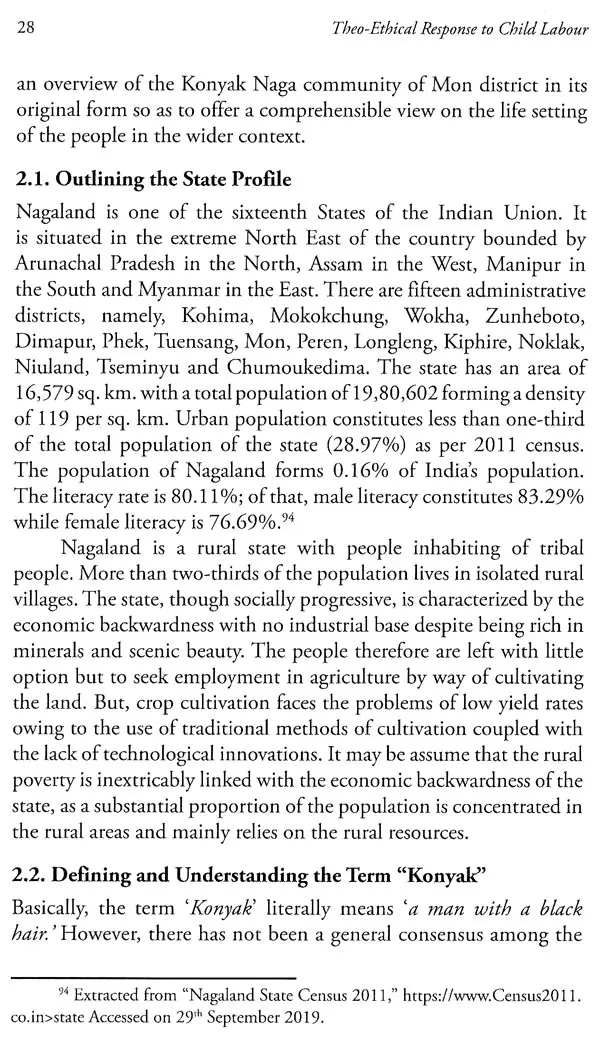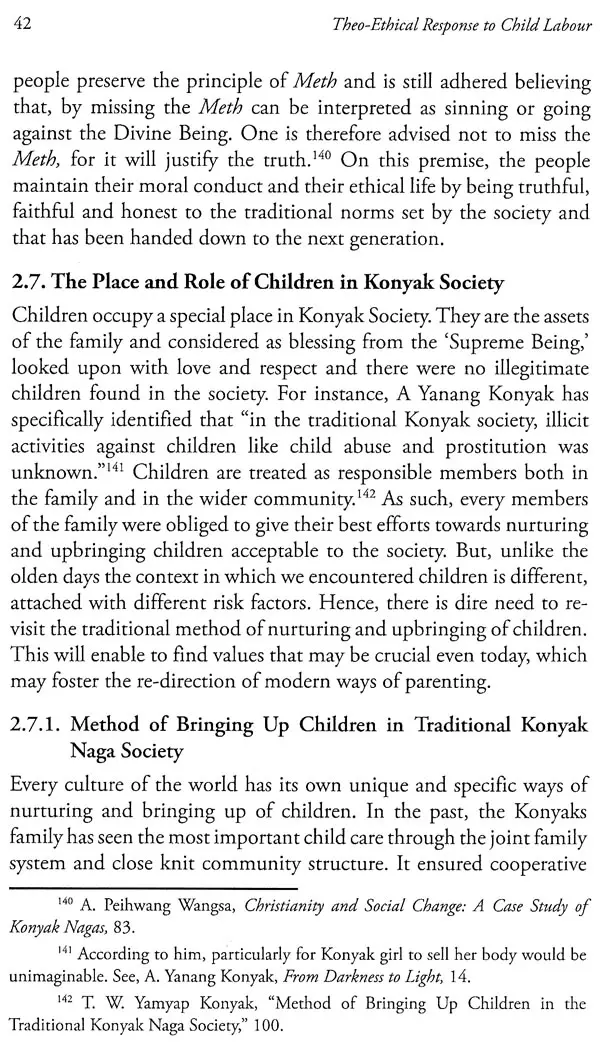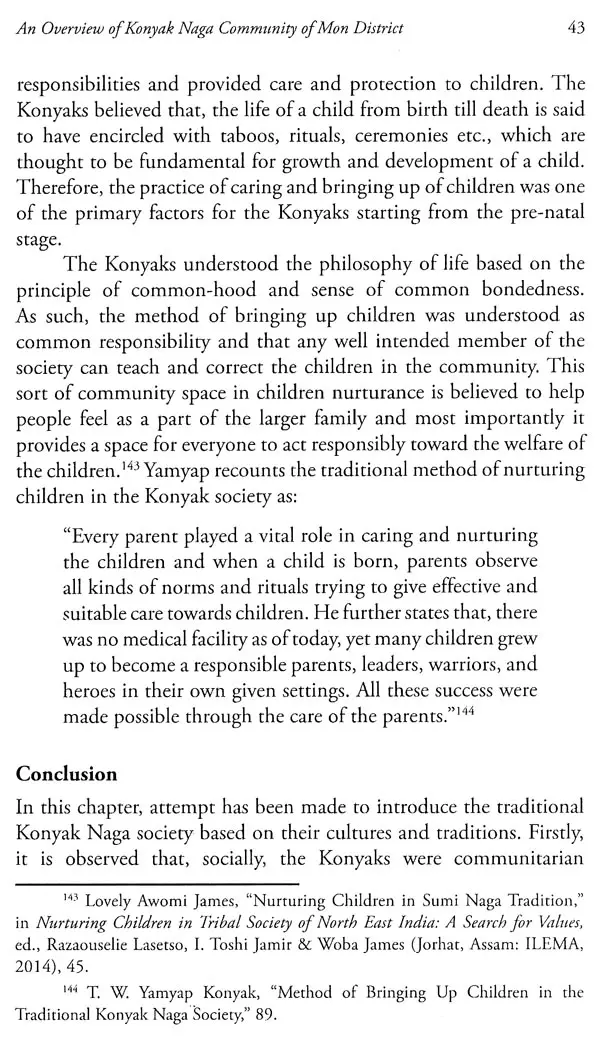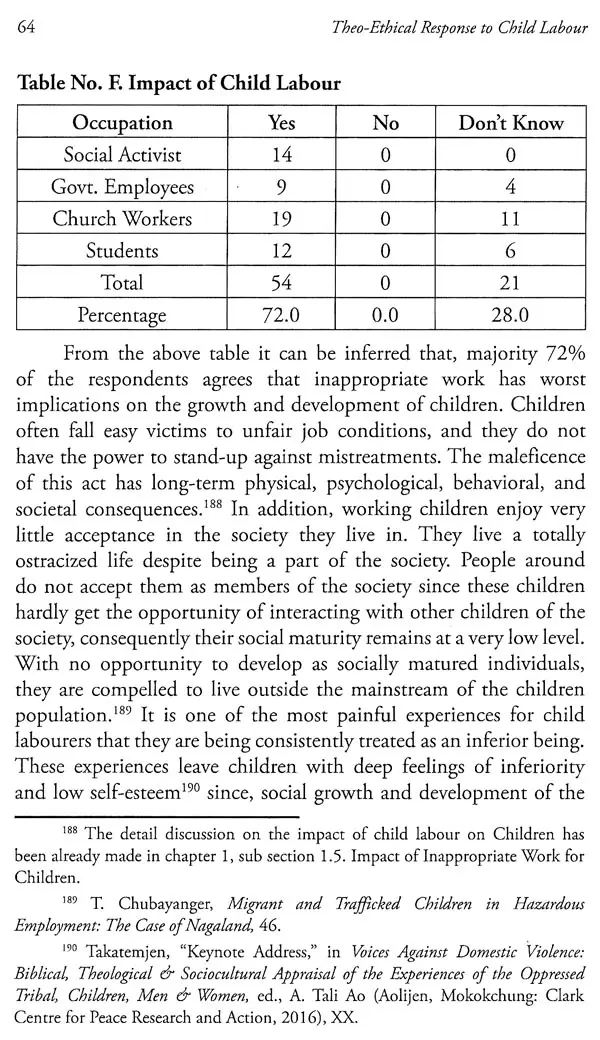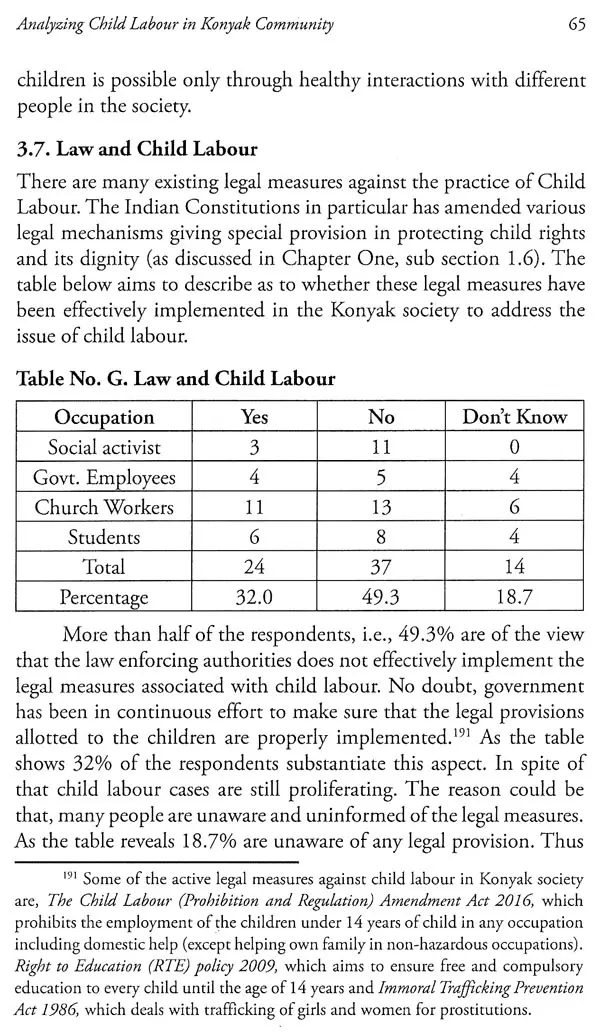
Theo-Ethical Response to Child Labour (Re-Claiming Human Value and Dignity)
Book Specification
| Item Code: | UBA750 |
| Author: | Noknai Konyak |
| Publisher: | Christian World Imprints, Delhi |
| Language: | English |
| Edition: | 2022 |
| ISBN: | 9789351486213 |
| Pages: | 145 |
| Cover: | HARDCOVER |
| Other Details | 8.50 X 5.50 inch |
| Weight | 370 gm |
Book Description
The book attempts to prove that Child Labour is a social reality. It aims to address the reality faced by the working children in the Konyak Naga Community. It is an in-depth study to find out the fact; and intends to formulate and provide a reliable alternative theological-ethical response with an adequate answer to attend to the call of the neglected and unattended children.
Noknai Konyak hails from Nokzang Village, Mon District of Nagaland. He obtained his Bachelor of Divinity (B.D.) Degree from Baptist Theological College, Pfutsero, Nagaland and Master of Theology (M.Th.) Degree in the department of Christian Ethics from Faith Theological Seminary, Manakala under Senate of Serampore College (University). Formerly, he served as missionary to Yangon (Myanmar) under Nagaland Missionary Movement (NMM). He is married to Mrs. Nyamjo Wenkhu and they are blessed with a beautiful daughter Jemimah Wenkhu and presently lives at Mon Town.
It is privilege for me to review this research work on the topic "An Ethical Response to Child Labour in the Konyak Naga Community." Perhaps, this research is the first attempt that the author has brought out in order to give awareness and also to adhere the urgent need of the neglected children. This research brought to light the reality faced by our own children in the society. Hence, it is an in-depth study to find out the fact; and provide ethical response with an adequate answer to the call of the unattended children.
The author gave an effort to present the general understanding of the issue of child labour in India in the first chapter. Secondly, he highlighted the socio-political, economic and religious settings of the Konyak society that reveals about the engrained community. He also dealt with the significant challenges brought about by the modern world. He firmly viewed on how the Konyak families took care of the children in the joint family. However, the researcher argued that in the contemporary age, children are found living in a pitiable condition amidst multiple risks such as child labour. Thirdly, analysis of the data collected proves that child labour is a reality in the Konyak community. The researcher reveals that there are increasing numbers of children as victims to domestic sectors as labourers and are unprotected to various forms of manipulations. The researcher urges that rationalizing the practice of child labour as character building and skill development for children have also contributed to increase the problem. Having analyzed the problem, the researcher appealed the government, NGOs, Churches to be a channel in creating awareness campaign to obtain for purging of such practices. He further urges media and NGOs to conscientize people about the dehumanizing issue of child labour to bring about positive changes in order to build healthy society. Fourthly, researcher proposes for an ethical response to this crucial issue with the Konyak concept of Meth, which is employed as a theological-ethical frame to create a viable response. The researcher affirmed that the concept of Meth stresses on maintaining communitarian harmony in the society. It focuses on justice, equality, liberation and inclusive society. Therefore, can serves as a relevant tool to address the problem.
Child labour exploits children under condition that subject them to risk and dignity violations. The society is consistently challenged by this plight and its impacts are likely to be far reaching. Therefore, this research attempts to critically examine the problem from an Ethical perspective to propose for Holistic Liberation.
It is estimated that out of the world's total population children occupy one third of its population and yet their issues have been neglected throughout the history.' Millions of children are at risk today facing problems due to varied factors such as trafficking, sexual abuse, poverty, lack of education, forced labour etc. In spite of that, their sufferings continue to remain unheard and unrecognized. As they often remain unable to express their sufferings and seeking for liberation.
**Contents and Sample Pages**
